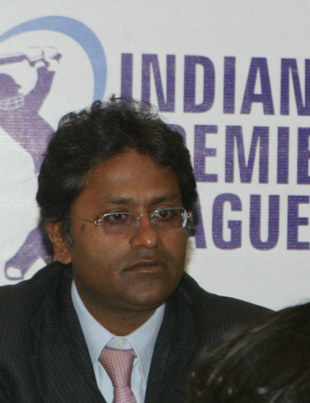ECB and BCCI move closer on Champions League

| ||
England's decision to send its team back to India barely two weeks after the terror attacks in Mumbai has led to a significant thaw in ties between the two national boards. Talks are still at a delicate stage but the BCCI, it is learnt, is now more open to accommodating the ECB in its Champions Twenty20 League blueprint, possibly in the way of one more team, a voice in its management and a host status in the future. The two boards are also known to be formalising a five-Test 'icon' status series, on the lines of the Ashes.
A top Indian official told Cricinfo India's relations with England are now "almost on par with our current relationship with Australia" - a far cry from the status earlier in the year, when the two sides were almost in opposite camps on a number of issues. He also suggested there was a new understanding within the BCCI of England's position on a variety of issues, including the primacy of England's domestic season that has prevented its players from participating in the IPL and the opportunities that will open up if England are invited to host the Champions League in the future.
Significantly, at the ICC level, India and England are now together in opposing a proposal from Australia for a Test championship to replace the current Future Tours Programme (FTP) that ends in 2012. The proposal involves neutral venues and limiting Zimbabwe and Bangladesh to home series to ensure commercial viability. More importantly, it suggests a central TV revenue pool, which England and India are averse to - they are cricket's major TV revenue-earners and stand to lose in such a deal.
The thaw began when the ECB decided to send its team to India after the terror strikes and was intensified after talks in Chennai and Mohali - the venues of the recent Test series - between Indian and English officials, including Giles Clarke, the ECB chairman, David Collier, the ECB chief executive, Shashank Manohar, the BCCI president, and N Srinivasan, the BCCI secretary.
No concrete decisions were taken in the absence of Lalit Modi, the IPL and Champions League chairman, but more talks are scheduled between the two boards in January. "The ice has been broken," the official said. "The relations between the two boards are at its best phase ever."
The mood is echoed on the English side. "The relationship between the ECB and BCCI is extremely strong and we will be delighted to work together for the betterment of world cricket," an ECB official said.
This is in stark contrast to a period from June-September when bilateral ties hit their lowest spot after India shut England out of the Champions League largely due to the presence of ICL players in the county circuit and a perceived "personality clash" between Clarke and Modi, the businessmen-administrators. This chill was reflected in a strongly worded email in July from the BCCI to the ECB, rejecting its invitation to send an Indian team for a rival Champions League in the Middle East, and telling England that it was time to "avoid playing ping pong" on the issue.
The BCCI had also taken strong exception to the ECB signing a tour deal with Sri Lanka Cricket (SLC), then headed by Arjuna Ranatunga, for May that would have prevented Lanka's cricketers from taking part in the second IPL edition. Sri Lanka subsequently pulled out.

| ||
"Besides, there will be a much bigger audience at the grounds in England for matches between, say, Victoria and Titans [South Africa], than in India," the Indian official said. "England's multi-cultural, multi-ethnic spectator base would work perfectly for a tournament like the Champions League."
The ECB, on its part, has alerted the counties to the perils of fielding ICL players, which would hamper their chances of playing in the Champions League - only Middlesex, who had no ICL players, were invited for the aborted inaugural edition. And, many counties have subsequently eased out the ICL players in their ranks, including Stuart Law, Saqlain Mushtaq and Jason Gillespie.
The BCCI, CA and CSA are scheduled to meet by January end to discuss the Champions League format in India for 2009, which could have up to 12 teams from the current eight.
Indian officials are also aware they may have to adjust future IPL schedules to secure England players for the entire tournament, though a senior IPL official has ruled out any change in their calendar, as of now. The IPL runs during April-May, while England's traditional summer starts in May, this time with a home series against West Indies. "A lot of progress has been made," the Indian official said. "England is the home of cricket and should now emerge as a valuable partner for India."
Ajay Shankar is deputy editor of Cricinfo
